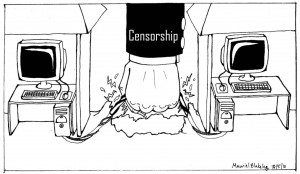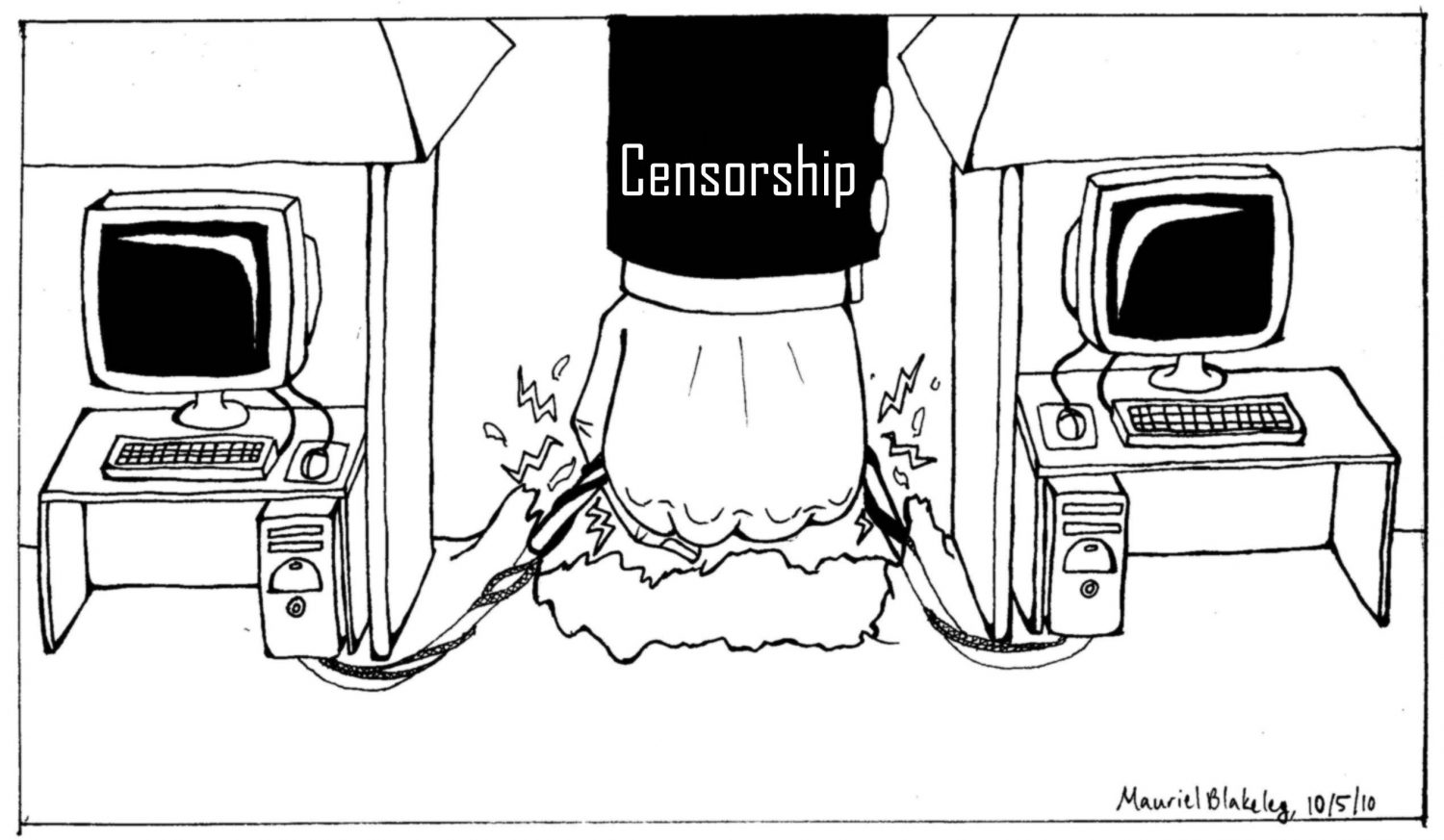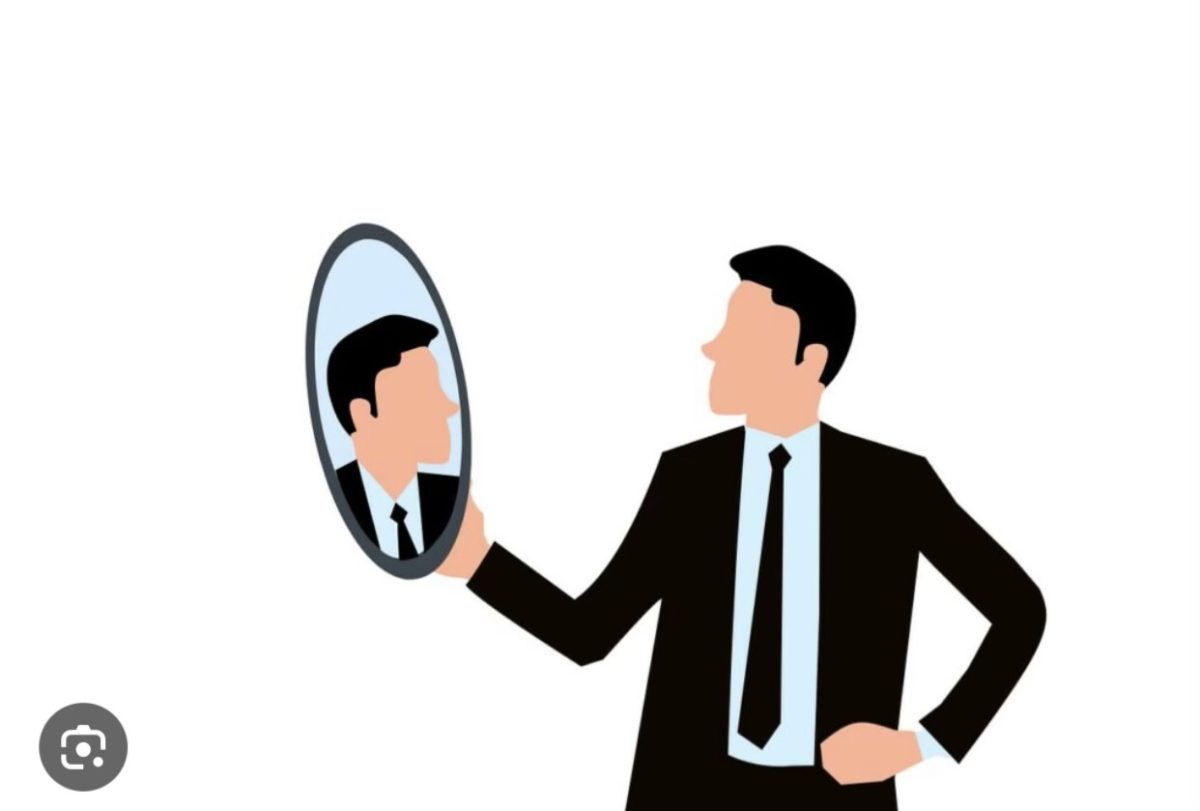
A bill recently suggested in Congress, although now delayed, the Combating Online Infringement and Counterfeits Act – sought to censor and restrict the ways in which we use the Internet.
According to EFF.org, the website of the Electronic Frontier Foundation, the COICA would create two internet “blacklists.”
One, a list of websites that users would be prevented from reaching, established by court orders. These are sites that do things that are actually illegal.
Two, a list of websites determined by the Department of Justice to be guilty of “infringing activities.” This second list would be established with no regard for judicial review, just…this is a site that infringed copyright, user access revoked.
What sites might be guilty of this sort of thing? Some “pirating” sites, a few TV series uploading hotspots. But imagine the day that a record executive decides that YouTube users are illegally using recordings made by his or her company. So he/she would call up the government. A few days and a few calls to Internet Service Providers (and other similar companies) later, and the next time you go to YouTube, all you get would be a “404 Page Not Found” error.
Not just for one video, but for every video. Every link. Every stupid comment. American viewers could no longer access YouTube because some jerk uploaded a video with a Justin Bieber song in the soundtrack.
This is a somewhat hyperbolic prediction. But it isn’t impossible. We don’t exist in a world where corporations have our best interests at heart. While I – as a photographer and moviemaker – do not endorse copyright infringement, I don’t want to respond with this type of approach. Corporations that would send these sites along to the government would not be doing so out of an interest in protecting their talent, no, they want to safeguard the bottom line.
I don’t feel that shutting down any site that steals something I make is an appropriate way to protect my content. An appropriate way to make sure that those in power stay in power, in wealth, perhaps, but not a way to provide me with fair compensation for my skills or a way to ensure proper distribution of content.
There are, I feel, two ways to deal with this problem. Solution one is essentially the Hulu model: Put ads everywhere. This is annoying for the consumer, and only reinforces corporate culture.
Instead, how about we take the radical step of massively increasing federal funding for the arts? I don’t mean doubling the NEA’s budget. I mean embarking on a funding project of Rooseveltian proportions: Make it possible for American artists – musicians, filmmakers, photographers, sculptors, painters, conceptual artists, whatever – to do art without them worrying about feeding their family or paying off college loans.
Allow artists to become federal employees (subject to zero political control; this money is paid out, no questions asked, to broaden our culture and our minds) first, corporate employees second.
With this strategy, artists can still become megastars, working for corporations, but without relying on insufficient, infrequent incomes from those same entities. Artists would still be paid for their work – a company would have to compensate fairly for the use of an image in an ad campaign or a song in a commercial – but no longer would ‘illegal’ usage of such song become a major wage-killer for the artists themselves.
How we would pay for this is a whole other commentary: In short, we would move some of the money going to waste in the defense budget to things like the arts, education and science.
Before you take out the pitchforks, this is an oversimplification of what I think we should be doing with our tax money. It would be worth it, though: Media could become cheaper, artists could become more plentiful, and in the end we could keep our Torrent, Limewire and YouTube soundtracks.
Best of all, though, when I say I want to be an artist, people will stop asking me how I like wsorking in coffee shops.
Noah Berman is a sophomore in the College of Arts and Sciences.











